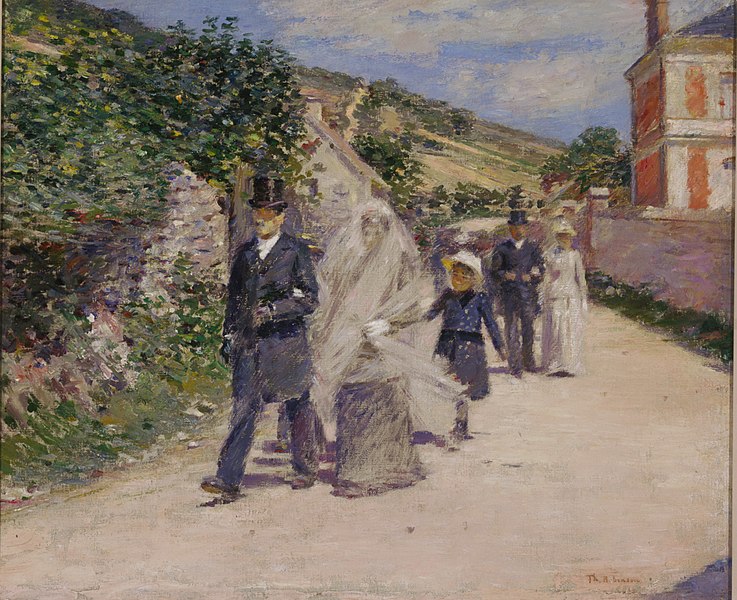Here’s the thing: I rarely laugh. I smirk at jokes in movies. I chuckle a few times at something like The Office (I’m not humorless). But it’s hard for me to really laugh. Things that make other people crack up—let’s say a 6-8 on the humor scale of 10—still leave me in the 1-2 range. But the writing of Harrison Scott Key makes me belly laugh—like put-the-book-down, my-wife-checks-to-see-if-everything-is-okay, I-can’t-control-myself laugh. I didn’t know I could laugh at books, but here I am. I’m a laugher.
I also never thought of myself as much of a crier. However, I remember being close to weeping at Key’s first memoir about his father in World’s Largest Man. His second memoir, Congratulations, Who Are You Again? is his take on pursuing and arriving at fame, and the disappointment that set in after getting everything he wanted. As an aspiring writer and academic with a young family, his honesty about wanting to be liked as an author—the drive and dedication mixed with the guilt at neglecting other responsibilities—woke me up to what I was doing with my life.
In his previous writing Key hinted at his faith, but in this third iteration—about the infidelity, collapse, and reconciliation of his marriage—his faith takes center stage. And, like his other writing, it’s not pedantic or preachy. As a preacher myself, I don’t know how people write about profound topics so elegantly and winsomely, but I envy the ability. Key never tells us what to do to stay married; instead, he tells a story that had me laughing at his self-denigration and crying at the grace that marked his life. The book helped me love my wife more, show more grace in my interactions, and live each day as a faithful spouse. It helped me take better stock of my shortcomings and laugh at them. Ironically, I think a story about infidelity made me a more thoughtful and generous person.
How to Stay Married was one of those books that I couldn’t put down. I hated being interrupted or going to sleep. I wanted to stay up and keep reading.
In the book, Key says he never heard a marriage sermon address the real reality of marriage. Sure, maybe the officiant speaks of “ups and downs” or “hard times” but not the things married couples sometimes think, the moments of exposure to the depths of sin—like wishing your spouse die in a non-brutal but very real way. He reads our diaries and is not afraid to be honest about them. And in his honesty, he made me feel less alone, less like a freak, and more like a human being among common strugglers. He made my hard marriage seem normal, because a normal marriage is hard. You can either have a hard marriage or an unhealthy marriage. These are your options. And Key not only made me feel normal, but he made me want to live more faithfully and with more grace in the marriage that I have. For, as he says, leaving marriage will change you but perhaps maybe not in the ways you should. Staying married will also change you, perhaps in the ways that you need to change.
How to Stay Married inspired me to pen a wedding homily. Here goes…
Today is a beautiful day—the gorgeous flower arrangements, the elegance of the bride, the picturesque landscape of summertime in Ohio, the groom, doing the best he can with what he’s got. There are a lot of distractions that hide an ugly truth in plain sight; there’s a dark underbelly of marriage that the wedding industry overlooks. Here’s the secret masked by the cultural niceties of the day: Marriage is a death sentence. As Key puts it in his memoir, “In order to stay married, the first thing you need is to be insane.” Getting married is fun—at least for your guests. Staying married feels a lot like death.
This may seem like a strange topic for such a perfect occasion, but as any married person knows, it’s true. We try to hide it under our put-together selves and the hidden baggage we carry around. We hope nobody will ask too intrusive a question or that we won’t over-share. But I need to tell you: If you’re going to love one another, and keep loving one another, you’re going to have to die.
Here are some ordinary situations you will encounter (or maybe already have) that will feel like death:
- One of you will clean very well and you’ll resent the other one for not being as tidy as you. The non-cleaner will have to deal with constant assaults on your mess.
- One of you will take a long time getting ready. The other will have to wait. (And I’m not sure which one of you will be which).
- One of you will feel the heavier burden of childcare duties in different seasons.
- You will disagree about when to invite someone over. Who to invite over. How often someone should be over. When they should leave.
- One of you will want to chat more than the other one.
- One of you will think the others is being too harsh as a parent.
- One of you will be too vulnerable in sharing your feelings (and the other will maybe bury such feelings deep and never bring them up).
And a thousand others. I’m sure you can map on your own disfunctions or place yourself in these. Such tensions are frustratingly and confusingly normal. And maybe it’s been normal to an extent for you two. But now, here’s the tricky part: You can’t leave. You’re stuck. Forever in the same conflicts you’ve already had.
At these moments you have a choice. You can think, “This is the way I am. You should conform to me. There’s nothing wrong with this aspect of me. As I think about it, there’s not much wrong with me at all. People like me.” This way leads to the death of marriage.
Or you can choose the way of love. It leads to life in your marriage, and probably to death to yourself. In those times you want to kill each other, you’re going to have to kill the passion inside you. That’s no easy task. It takes a lifetime, which is perhaps why marriage, as you’ll promise, is until death do you part.
You can let yourself grow bitter and resentful of the other person for not being you, or you can let the suffering that is marriage shape you. Because maybe God loves you and your spouse better than you do, and maybe your differences are God’s very grace in your life. Just as God’s grace carries you, being graceful with one another will carry your marriage.
At the end of the pain of joining your lives together, you’ll become the person you were made to be—the real you, the authentic you. Hopefully, forty or fifty years from now, you’ll look across at each other and reflect on the pain and joy, the suffering and success, the good and the bad, and rejoice that you never left, you never gave up. You will have died many deaths—death of friends and family, death of ego and pride, death of preference—and you will be raised to new life, a life of promise and faithfulness and resurrection. All this talk of death would be bad news, of course, if there were no resurrection. But there is. And on that day, you may look back on pictures from this day and then look at this person in front you and not recognize them. You may think, “How and why did we get married?” But you’ll be glad you did.
This marriage story is the story of life and of God. God says that at the end of all time, it will be like a marriage supper—a bridegroom coming for his bride. Around the table, there will be tales of suffering and pain and hurt and disappointment. But none of that will define this supper. It will be a celebration. All the suffering will be taken up into the suffering Christ, and we will rejoice, because God has made us who we were made to be—the most authentic, real, alive you. Karl Barth was alleged to have written that laughter is the closest thing to the grace of God. There’ll be laughter at this feast—even in the reality of death.
In this marriage we are witnessing today and that you are participating in, we get a foretaste of that great supper. Christ’s love for you is insane, and perhaps that’s why marriage requires a little insanity, too.
How and why did God choose you to be at this feast? No idea. But I’m glad he did. It almost makes me want to laugh. It feels a lot like grace.
Image credit: “The Wedding March” by Theodore Robinson






1 comment
Zach Boston
This was very well done! And the language you used in your homily is exactly why many Christian groups see marriage as a sacrament: it is an instrument God uses to bestow his grace and shape the couple more into his likeness. I also think you hit on a very important aspect of marriage: death in the sense of self-giving. In other words, martyrdom. This is why, in traditional Orthodox weddings, the bride and groom are given crowns which are meant to be the crowns of martyrs.
For those, such as myself, facing a perpetual singleness, we have our own martyrdom, our own sacramental struggles God uses to shape us. So many of our desires, especially around romantic companionship and sexual release, go unfulfilled if we live faithfully. As I can attest, this is difficult, though it comes with its own gifts. And it is one of these gifts that makes me think, as hard as singleness can be, it is ultimately easier than marriage: a relative wealth of self-determination. Singleness and celibacy may demand its own death but, unless one is a monk or intentional community, not as many kinds of death as I see marriage demanding.
Comments are closed.